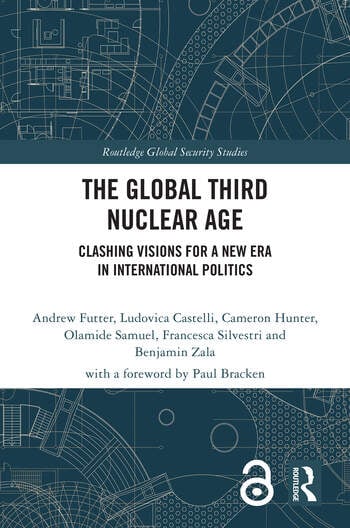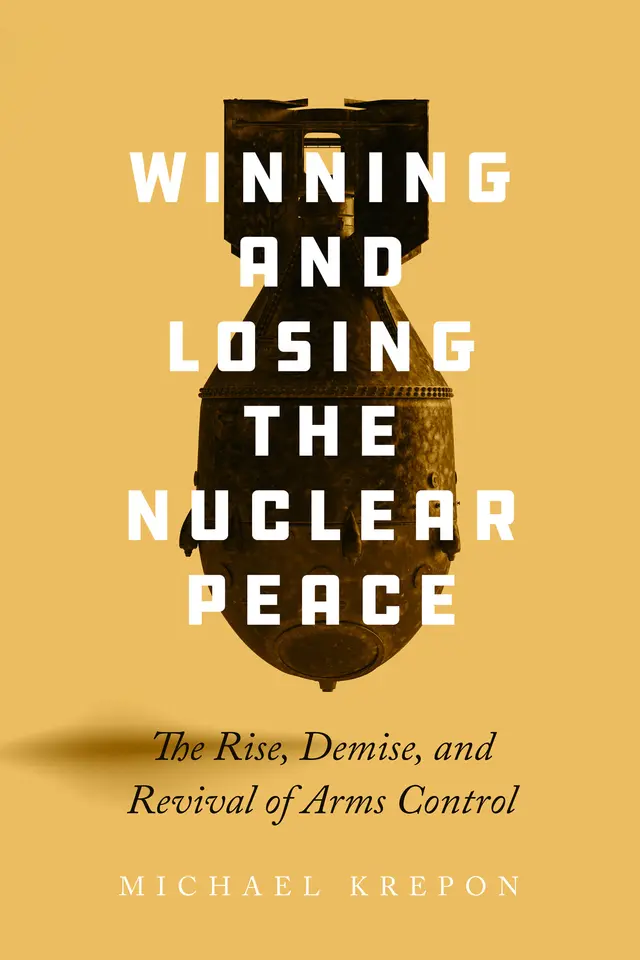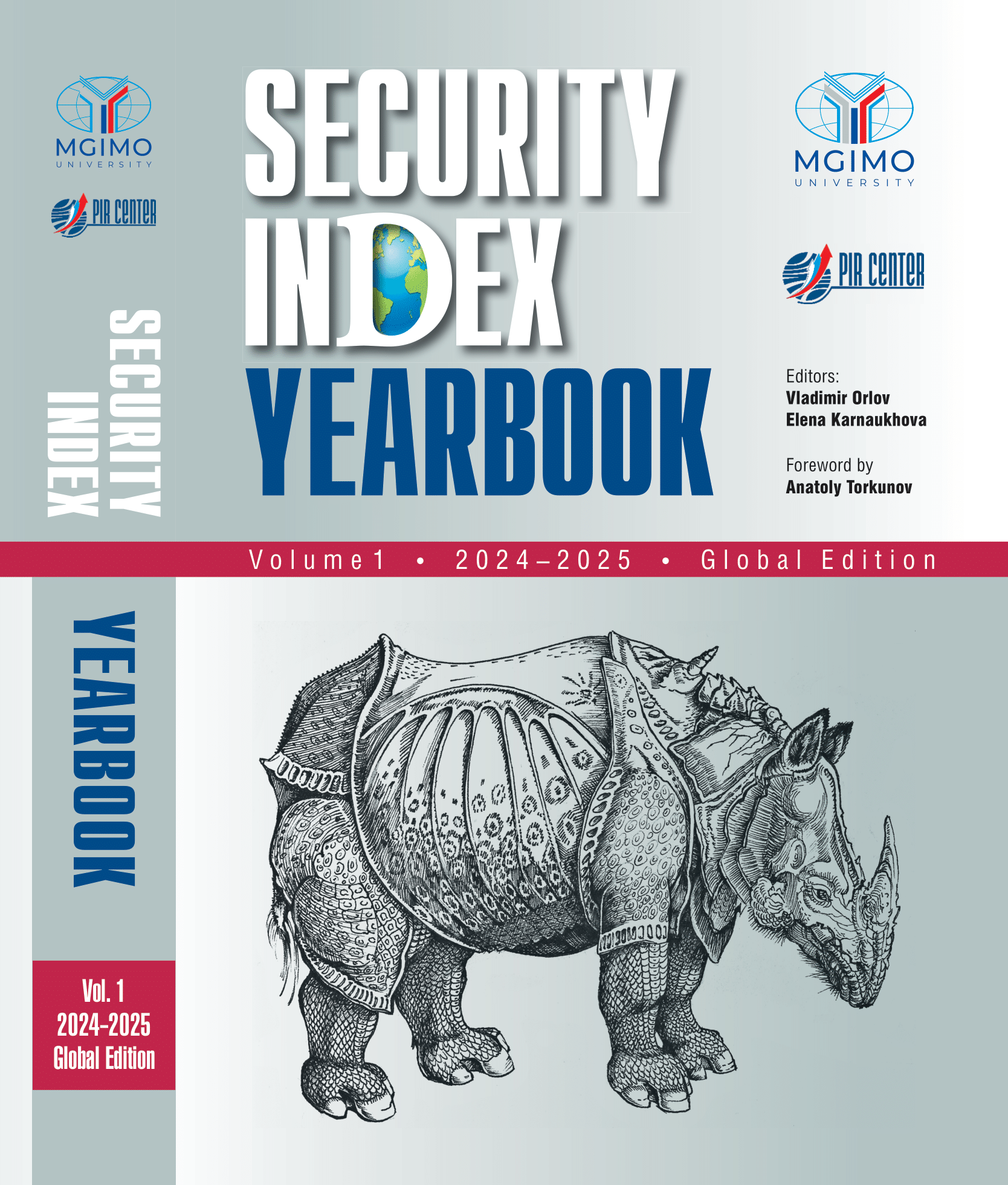Book Review
We publish reviews and speak about new books on international security issues
The Nuclear Article of Faith: Can the Initiative of the Global Third Nuclear Age Be Implemented Effectively?
Mr. Artem Astvatsaturov,
PIR Center Intern
February 17, 2025
Today, we are pleased to share a review by Mr. Artem Astvatsaturov, PIR Center Intern, on the monograph written by Andrew Futter, Ludovica Castelli, Cameron Hunter, Francesca Silvestri, and Benjamin Zala titled The Global Third Nuclear Age. Clashing Visions For a New Era in International Politics.
Andrew Futter, Ludovica Castelli, Cameron Hunter, Francesca Silvestri, and Benjamin Zala. The Global Third Nuclear Age. Clashing Visions For a New Era in International Politics. Taylor & Francis Group, Newgen Publishing UK. 2025.
ISBN: 978-1-0329-4379-4
The rapid changes in the realities of the international security agenda have a tremendous influence on shaping new precedents for understanding the key Nuclear Cascades. The process of expanding the membership of the “Nuclear Club” during both the Cold War and the post-Cold War order highlights the ineffectiveness of the current nuclear order and the general principles of nuclear nonproliferation and arms control. A new monograph by a team of authors from the Routledge Global Security Series provides a comprehensive analysis of the historical background and evolution of nuclear norms, as well as suggested initiatives for nuclear order reforms.
In the monograph, a new approach to understanding the foundation of the Global Nuclear Order is divided into several groups, formed based on the nuclear role of the actors within the New Nuclear Cascade. Additionally, the authors do not define nuclear weapon possessors as the sole members of this New-Age Nuclear Cascade. Instead, non-nuclear-weapon states are also recognized as full members of this environment, alongside “Nuclear Club” members. Furthermore, there is no hierarchy or unevenness between non-nuclear-weapon states and nuclear-weapon possessors within the Nuclear Cascade. It is crucial to highlight the importance of developing a more effective nuclear environment that ensures the objectives enshrined in the Treaty on the Non-Proliferation of Nuclear Weapons (NPT).
The authors suggest the following differentiation of Nuclear Cascade actors:
- Activists and Protesters (Austria, Kazakhstan, South Africa, Indonesia, and Brazil);
- Hedgers and Balancers (Iran, Germany, India, the UK, and the PRC);
- Technological Transformers (Japan, Australia, South Korea, Israel, and Taiwan*);
- Nuclear Traditionalists (Russia, the U.S., France, Pakistan, and North Korea).
Doubtfully, this proposed system could be implemented as a stable mechanism for interaction among all nuclear groups due to the unclear methodology for defining these groups and their specific functional roles within the new Nuclear Cascade, as presented in the monograph. Consequently, the team of authors should employ different approaches in international studies, drawing attention to the case study method to verify the accuracy of forming these five nuclear groups and categorizing both non-nuclear-weapon states and nuclear-weapon possessors accordingly.
In the monograph, the classification of the U.S. as a member of the nuclear traditionalist group lacks logical structure due to the rapidly shifting nuclear policy course of the White House in the post-Cold War era. This policy fluctuates based on the interdependence between the “Blob” nuclear policy beliefs and the prevailing political party in the U.S. administration. There have been instances of the U.S. deviating from the nuclear traditionalist course due to internal contradictions between political factions, influenced by the significant role of the U.S. Congress and its Foreign Affairs Committee representatives. While the U.S. has undoubtedly pursued a nuclear traditionalist policy over the past decade, a clear methodology for determining and explaining group selection would be a strong advantage for this research paper, particularly amid the ongoing reorientation of the strategic stability system.
The monograph identifies several macro-political groups within the new Nuclear Cascade and assigns a superior role in the emerging reformed geopolitical order to two key macro-political regions: Europe and the Indo-Pacific. The system-based approach used in the monograph could enhance understanding of the interactions between different groups in the context of a new strategic stability dialogue, framed within the identification of key geostrategic regions in the current international security regime. Furthermore, Europe, as a macro-political region, is described as the most strategically significant zone, though this statement lacks a strict explanation in relation to the ongoing reorientation of geopolitical architecture.
Additionally, the monograph’s authors attempted to develop the concept of an extensive coalition of European states with situational partnership principles, divided into two main nuclear blocs: nuclear traditionalists and balancers. Some international security scholars have described the European Nuclear Cascade as a comprehensive and expansionist variation of the U.S.-led nuclear umbrella, projecting the continuation of P3’s activity. The formation of the Nuclear Cascade, divided into several types of players in its new environment, could lead to a new round of nuclear reversal with a differentiated approach.
Apart from that, nowadays, P3 members and key European states interested in implementing the key principles of the NPT and developing Nuclear Cascades as a full-scale mechanism for ensuring strategic stability worldwide are losing their nuclear independence and submitting to a single center of strategic force — the U.S. Hence, it would be more accurate to scrutinize the reformation of the Nuclear Cascades in Europe as a reflection of a unified Transatlantic nuclear player led by Washington, with differing positions and contradictions in its internal structure and the strategic ambitions of its most significant players. Furthermore, defining this system as a single player on the international stage, divided into two ambivalent strategic groups, could serve as a direct signal of a checks and balances system within the existing strategic stability environment.
The authors also suggested seeking consensus in policymaking, adhering to the concept of the changing nature of the global nuclear order in the context of its infancy when it comes to fully conceptualizing what this means for the future of global nuclear politics. This would be within the framework of creating a joint space of interconnectedness between different recipients of the reforming nuclear order. It is important to highlight the unique approach to defining and understanding the Nuclear Cascade as a distinct, unified, and holistic environment.
In the monograph, the definition of the Nuclear Cascade in the period of the third nuclear age is presented as a full-scale complex of Nuclear Cascade components, divided into several concepts:
- There are more (often multi-party) adversarial relationships where nuclear weapons play a role than in the past.
- The intermingling of strategic non-nuclear weapons and nuclear weapons has created new pathways to deliberate or inadvertent nuclear use.
- More influential voices are being heard, reshaping the normative nuclear context.
Moreover, there is no clear understanding of the possibility of transitioning between different groups due to changes in nuclear policy as a result of national foreign policy reorientation. While this could be characterized as an ultra-idealistic concept, it has the potential to enhance the effectiveness of political strategies aimed at fulfilling the key objectives of the NPT in the context of reconceptualizing the international nuclear agenda. The best course of action would be to design a process for transforming the Nuclear Cascade and its role in new nuclear and strategic international regimes.
In conclusion, it is important to note that the authors’ approach to understanding the evolution of new Nuclear Cascade mechanisms is presented as an innovative theoretical development. Unfortunately, there is no clear explanation of the practical implementation of the proposed scenarios for ensuring the evolution of these Nuclear Cascades. Moreover, the monograph follows an extraordinarily idealistic pattern without considering this relevant issue from the perspectives of other international regime theories, which focus on multilateral forecasting of the evolution of these Nuclear Cascade mechanisms. However, this does not negate the fact that the monograph provides a significant perspective on changes in the framework of Nuclear Cascade coordinates in the context of the reinforcement of non-nuclear strategic weapons and deepening cooperation on nonproliferation and nuclear disarmament within the reformation of the strategic stability system through deep military integration between both nuclear-weapon possessors and non-nuclear-weapon states.
The authors rightly pointed out at the end of their research paper that the nuclear order must be shaped as a result of the gradual strategic transformation of changing international regimes: “The global nuclear order is the result of politics and political decisions taken — most often by small groups of policy and military elites — that shape the security context. Likewise, there is no timeline for when this current period may end or transition into something different.”
Hence, creating the conditions for the development of this positive scenario depends on the transformation of the international order. Apparently, the current Nuclear Cascade system is presented as a chaotic area with deepening hegemonic ambitions of key players, which needs to be transformed in parallel with the process of conceptualizing the international system.
* –– originally used by the authors of the monograph. The author of this book review recognizes Taiwan as an integral part of the PRC.
Keywords: Arms Control; Global Security; Nuclear Nonproliferation
NPT
F4/SOR – 25/02/17











